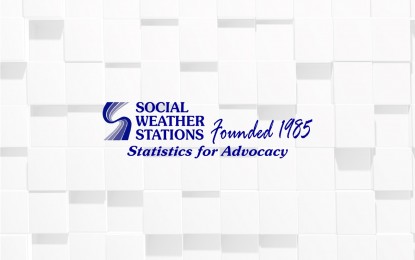
MANILA – A new Social Weather Stations (SWS) survey revealed that around 9 of 10 Filipino adults, or 93 percent, have personally experienced climate change impacts in the last three years.
The SWS survey conducted Dec. 10 to 14, 2022 specifically found that 17 percent of the respondents have experienced severe impact of climate change, 52 percent felt moderate impact, while 24 percent experienced little impact.
Only 6 percent said they did not experience any impact of climate change.
The same survey showed that 88 percent of Filipinos believe that they could do something to reduce climate risks.
Around 76 percent said humanity could do something to stop or slow down climate change if everyone really tried, while 23 percent believe that climate change is beyond humanity's control, SWS reported.
SWS said there is a very high public awareness of selected solutions to reduce the negative effects of climate change, including planting trees, saving electricity at home, walking, cycling, or taking public transportation, recycling and throwing away less food.
The Fourth Quarter 2022 survey used face-to-face interviews of 1,200 adults (18 years old and above) nationwide.
Respondents included 300 each in Metro Manila, Balance Luzon, the Visayas, and Mindanao.
The sampling error margins are ±2.8% for national percentages, ±5.7% each for Metro Manila, Balance Luzon, the Visayas, and Mindanao.
Meanwhile, Senator JV Ejercito urged the government to act with urgency and enhance resilience and adaptability to the effects of climate change.
Ejercito’s Senate Bill No. 2027, or the Climate Change Emergency Declaration Act, mandates government departments and agencies to “immediately and efficiently cooperate in taking practicable measures to preserve and protect the environment.”
These are the Climate Change Commission, National Disaster Risk Reduction and Management Council; Philippine Atmospheric, Geophysical, and Astronomical Services Administration; and the Departments of Education, Environment and Natural Resources, Interior and Local Government, Science and Technology, Labor and Employment, and Information and Technology.
“Our country is no stranger to climate change being one of the most highly vulnerable countries, rise of sea levels, increase in frequency of extreme weather events, rise in temperature and extreme rainfall due to high exposure to natural hazards, dependence on climate-sensitive natural resources, and vast coastlines where cities and population reside, name it, our country has been through it.” Ejercito said in his explanatory note.
Ejercito pointed out that the country lies in the world's most cyclone-prone region, averaging 19 to 20 cyclones each year, of which seven to nine make landfall.
Based on a report by the United States Agency for International Development, the Philippines’ urban poor are most at risk since they are lacking the resources to prevent or mitigate the threat of coastal inundation and storm surge. (With a report from Leonel Abasola/PNA)
